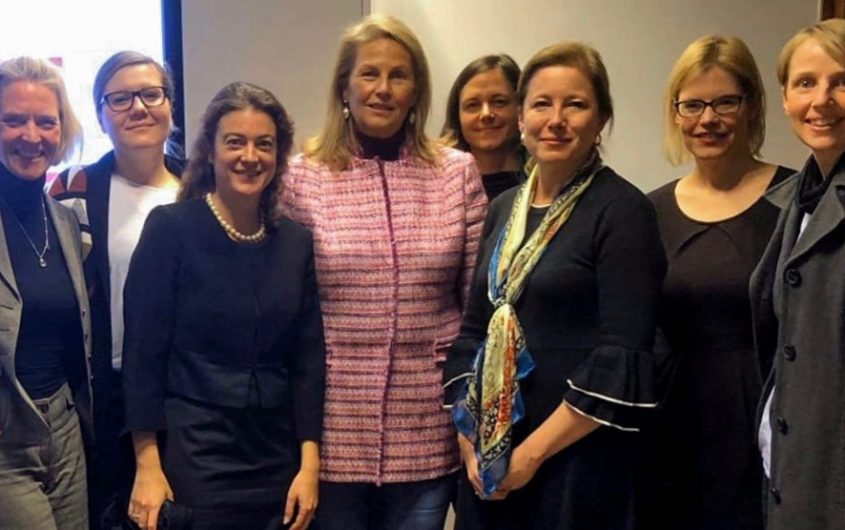AGI News
Women of Mass Destruction


Sarah Lohmann
Dr. Sarah Lohmann is Non-Resident Fellow with the American-German Institute. Dr. Lohmann is an Acting Assistant Professor in the Henry M. Jackson School for International Studies and a Visiting Professor at the U.S. Army War College. Her current teaching and research focus is on cyber and energy security and NATO policy, and she is currently a co-lead for a NATO project on “Energy Security in an Era of Hybrid Warfare”. She joins the Jackson School from UW’s Communications Leadership faculty, where she teaches on emerging technology, big data and disinformation. Previously, she served as the Senior Cyber Fellow with the American Institute for Contemporary German Studies at Johns Hopkins University, where she managed projects which aimed to increase agreement between Germany and the United States on improving cybersecurity and creating cybernorms.
Starting in 2010, Dr. Lohmann served as a university instructor at the Universität der Bundeswehr in Munich, where she taught cybersecurity policy, international human rights, and political science. She achieved her doctorate in political science there in 2013, when she became a senior researcher working for the political science department.
Prior to her tenure at the Universität der Bundeswehr, Dr. Lohmann was a press spokeswoman for the U.S. Department of State for human rights as well as for the Bureau of Near Eastern Affairs (MEPI). Before her government service, she was a journalist and Fulbright scholar. She has been published in multiple books, including a handbook on digital transformation, Redesigning Organizations: Concepts for the Connected Society (Springer, 2020), and has written over a thousand articles in international press outlets.
AGI Senior Fellow Sarah Lohmann moderated a discussion on next generation thinking on deterrence policy on October 23. Meeting four days after President Trump had announced the United States would pull out of the Intermediate Range Nuclear Forces (INF) agreement, participants from Women in International Security (WIIS) were able to get an inside look at what moving nuclear policy looks like as both Munich’s Consulate General Meghan Gregonis and keynote speaker Rebecca Hersman, the director of CSIS’ Project on Nuclear Issues, spoke of their experiences working together on security policy in high levels of the U.S. government.
Dr. Lohmann posed questions about the security consequences of pulling out of the Intermediate Range Nuclear Forces agreement, of potential budget reductions in the U.S. modernization program, and why a European public should be concerned about cutting research and development on low-yield sub-launched ballistic missiles. A lively discussion about Germany’s role in the nuclear debate, Europe’s response to the withdrawal, and the consequences for the transatlantic relationship ensued.










